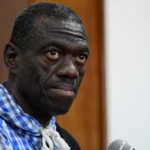In one of the largest displacements of children in such a short period, more than 30,000 minors many of them separated from their families have fled a fresh wave of violence in Mozambique’s northern Cabo Delgado province over the past two weeks, according to Save the Children. The alarming surge in displacement follows a series of escalating attacks by non-state armed groups that began on 20 July, forcing nearly 60,000 people from their homes, with children making up half of those affected. The International Organization for Migration (IOM) warns that the numbers are expected to climb as insecurity spreads.
Chiúre District has been the hardest hit, with violent assaults targeting homes, police stations, schools, and health centres in multiple villages. Reports indicate that armed groups have looted medical supplies, further straining the already fragile healthcare system. The violence has sparked widespread fear, pushing families to seek refuge in overcrowded schools or with host families, where basic services are stretched thin and protection concerns continue to rise daily.
Children—especially those separated from their parents or guardians—face heightened risks of violence, exploitation, abuse, child marriage, and recruitment into armed groups. Humanitarian workers say the psychological toll is severe, with many children experiencing deep trauma from witnessing attacks and losing loved ones. Save the Children teams on the ground are working urgently to provide mental health and psychosocial support, create safe spaces for children to play and learn, conduct family tracing and reunification, and carry out malnutrition screenings for vulnerable children and adolescent mothers.
Ilaria Manunza, Save the Children’s Country Director in Mozambique, described the situation as “harrowing,” warning that the needs of children are far outpacing available resources. “We are working around the clock to provide them with a safe space, food, and medical attention, but as more families arrive every day, urgent support from the international community is required,” she said. Manunza stressed that separated children are particularly vulnerable and that her teams are doing everything possible to reunite them with their families quickly. She called for an immediate end to the conflict, which has robbed children of their safety and childhood for the past eight years.
The conflict in Cabo Delgado, now in its eighth year, has had devastating effects on children’s lives. There have been repeated reports of beheadings, abductions, and killings of minors, alongside the destruction of essential infrastructure. The ongoing violence has also deepened the humanitarian crisis, with limited access to clean water, education, sanitation, and healthcare. Malnutrition is a growing concern, as food insecurity worsens with every new wave of displacement.
Save the Children, which has operated in Mozambique since 1986, continues to work with local communities, partners, and the government to address both immediate humanitarian needs and long-term recovery. The organization is calling for greater investment in resources for children, as well as sustained international attention to a crisis that has been largely overlooked despite its scale and severity. Without urgent intervention, thousands more children could face displacement, hunger, and exploitation in the months to come.













Leave a comment